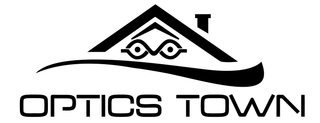Sunglasses are often seen as must-haves for sunny days—but can they protect your eyes from phone screens too? With most of us spending hours on smartphones, laptops, and other screens, it’s important to understand how blue light exposure affects eye health and whether sunglasses can help.
Let’s break down what blue light is, how it impacts your eyes, and whether sunglasses are useful for screen time.

What Is Blue Light, and Why Does It Matter?
Blue light is part of the visible light spectrum. It has short wavelengths and high energy, and it’s found in:
-
Sunlight
-
LED lighting
-
Digital screens (phones, laptops, tablets, TVs)
While natural blue light can help regulate sleep and mood, too much from digital screens may cause:
-
Eye strain
-
Headaches
-
Blurry vision
-
Trouble sleeping
That’s where blue light blocking glasses or specialized sunglasses come in—they help filter this light and reduce the effects of overexposure.
Do Regular Sunglasses Block Blue Light?

Standard sunglasses are mainly designed to block UV rays from the sun, not blue light from screens. So while they reduce glare and brightness outdoors, they don’t usually offer full protection against digital blue light.
However, some sunglasses now include blue light filtering technology, which helps reduce exposure from screens. Features to look for:
-
Blue light blocking lenses (often tinted yellow or amber)
-
Polarized lenses to reduce glare
-
Photochromic lenses that darken outdoors and clear up indoors
-
Scratch-resistant coatings for longer-lasting use
👉 If your goal is to reduce blue light from phones or laptops, you may want to use blue light glasses instead of—or alongside—sunglasses.
Are Sunglasses Good for Phone Use?
Yes, but with a catch. If you’re using your phone outdoors, sunglasses with polarized lenses can reduce glare from reflective surfaces like water, glass, or pavement. This helps prevent squinting and eye fatigue.
But indoors, regular sunglasses may not help much—and could actually make your screen harder to see.
💡 Pro Tip: For screen use, especially indoors, try glasses made specifically for blue light protection. Many brands now offer clear, stylish options designed for long hours on screens.
How Blue Light Affects Your Eyes
Here’s what experts say about long-term exposure to blue light:
-
It can cause digital eye strain, also known as computer vision syndrome.
-
Over time, it may increase the risk of retinal damage.
-
Children and teens are more vulnerable due to developing eyes.
-
It may contribute to the progression of myopia (nearsightedness).
While sunglasses block harmful UV rays, they don’t always filter blue-violet and blue-turquoise light from screens. That’s why blue light filtering glasses are a better option indoors.
Screen Time and Myopia in Kids
Studies suggest that increased screen use—especially in children—can raise the risk of developing myopia. Lack of outdoor time and too much close-up work (like scrolling) are two major risk factors.
✅ Encourage kids to:
-
Spend more time outdoors in natural light
-
Take regular screen breaks
-
Wear blue light filtering glasses for long digital sessions
Do Any Sunglasses Block Blue Light?
Yes—some sunglasses come with blue light filtering lenses, though they’re more common in glasses made for indoor use.
Popular sunglasses with blue light protection include:
-
Hazel sunglasses – tinted to block blue-violet light, reduce glare, and protect against UV.
-
Rover sunglasses – stylish, scratch-resistant, and designed to reduce both blue light and UV exposure.
If you’re using your phone outdoors in bright light, these styles can protect your eyes from glare and harmful rays while still offering some blue light filtering.
Screen Time, Blue Light & Mental Fatigue
Too much screen exposure doesn’t just affect your eyes—it can also lead to mental exhaustion, anxiety, and sleep problems. Blue light disrupts melatonin, the hormone that controls sleep.
To reduce this effect:
-
Use night mode or warm screen tones
-
Install blue light filter apps
-
Use glasses that filter both blue and UV light
-
Stick to the 20-20-20 rule: every 20 minutes, look 20 feet away for 20 seconds
Other Ways to Protect Your Eyes from Screens
1. Use Blue Light Glasses
These are designed for daily use and block specific wavelengths that cause strain. Choose clear lenses for office or indoor use, and consider photochromic lenses if you’re often moving between indoor and outdoor settings.
2. Adjust Your Device Settings
-
Lower screen brightness
-
Turn on night shift or eye comfort mode
-
Reduce white backgrounds with dark mode
3. Take Screen Breaks
Follow the 20-20-20 rule and blink more often to keep your eyes moist and rested.
4. Talk to Your Eye Doctor
A professional can help you choose the best eyewear—whether it’s prescription glasses with blue light protection, photochromic lenses, or UV-blocking sunglasses.
Sunglasses vs. Blue Light Glasses: Which Should You Use?
| Feature | Sunglasses | Blue Light Glasses |
| UV Protection | ✅ Yes | ❌ Not always |
| Blue Light Filtering | ❌ Usually not | ✅ Designed for it |
| Best for Outdoor Use | ✅ Yes | ❌ No |
| Best for Screen Use | ❌ No | ✅ Yes |
| Polarized Options Available | ✅ Yes | ✅ Sometimes |
| Photochromic Available | ✅ Yes | ✅ Yes |
Conclusion
Sunglasses are great for blocking UV rays, reducing glare, and protecting your eyes outdoors. But if you’re looking for protection from phone screens and digital devices, they’re not enough on their own.
Instead, opt for blue light filtering glasses for indoor use, and save sunglasses for sunny days or outdoor screen time.
By combining proper eyewear, screen time breaks, and healthy habits, you can reduce eye strain and support long-term vision health. Choose Optics Town’s Custom Magnetic Clip-on Sunglasses for your eye health!




